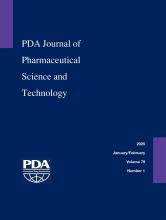Abstract
Post-approval changes (PACs) are integral to pharmaceutical product lifecycle management ensuring that the product remains safe, effective, and compliant with evolving standards. However, managing these changes across multiple regulatory jurisdictions remains a challenging endeavor due to diverse regulatory requirements and timelines across national regulatory authorities (NRAs). This results in delays obtaining approval from NRAs, impacting global supply chains, and ultimately jeopardizing timely access of essential medical products to patients. In 2021, the WHO issued the Good Reliance Practices (GReIP) guidance to encourage streamlined PAC review and approval process while maintaining access to quality-assured, safe, and effective medicinal products. NRAs are encouraged to rely on the assessment completed by a reference authority that agrees to provide the outcomes of its regulatory expertise. The ultimate objective of this guidance is to accelerate the overall process for PACs, ultimately fostering more equitable and timely access of medical products to populations who need them. This approach was tested in a CMC PAC pilot to determine the feasibility of using the principles of regulatory reliance based on the recommendations outlined in the GReIP with the goal of establishing a predictable, 6-month approval timeframe across multiple NRAs. The design and management of this pilot is described in Gastineau et al.
This paper describes the outcomes of the pilot which demonstrates that regulatory reliance is feasible. Of the 21 Regulatory NRAs that agreed to participate, 55% were able to complete the review within 6 months; within 10 months, 95% of approvals were received and, after 16 months, all participating countries had approved the PAC. The use of a Q&A SharePoint Tool allowed for visibility of the questions raised and company responses amongst NRAs. Feedback on this reliance pilot was solicited from the participating NRAs and provides further support for future CMC PAC reliance cases.
- Post approval change
- Regulatory reliance
- Harmonization
- Supply Continuity
- Regulatory Reliance Feasibility
- Convergence supply
- Vaccines
- Received October 11, 2024.
- Accepted April 15, 2025.
- Copyright © 2025, Parenteral Drug Association
PDA members receive access to all articles published in the current year and previous volume year. Institutional subscribers received access to all content. Log in below to receive access to this article if you are either of these.
If you are neither or you are a PDA member trying to access an article outside of your membership license, then you must purchase access to this article (below). If you do not have a username or password for JPST, you will be required to create an account prior to purchasing.
Full issue PDFs are for PDA members only.
Note to pda.org users
The PDA and PDA bookstore websites (www.pda.org and www.pda.org/bookstore) are separate websites from the PDA JPST website. When you first join PDA, your initial UserID and Password are sent to HighWirePress to create your PDA JPST account. Subsequent UserrID and Password changes required at the PDA websites will not pass on to PDA JPST and vice versa. If you forget your PDA JPST UserID and/or Password, you can request help to retrieve UserID and reset Password below.






